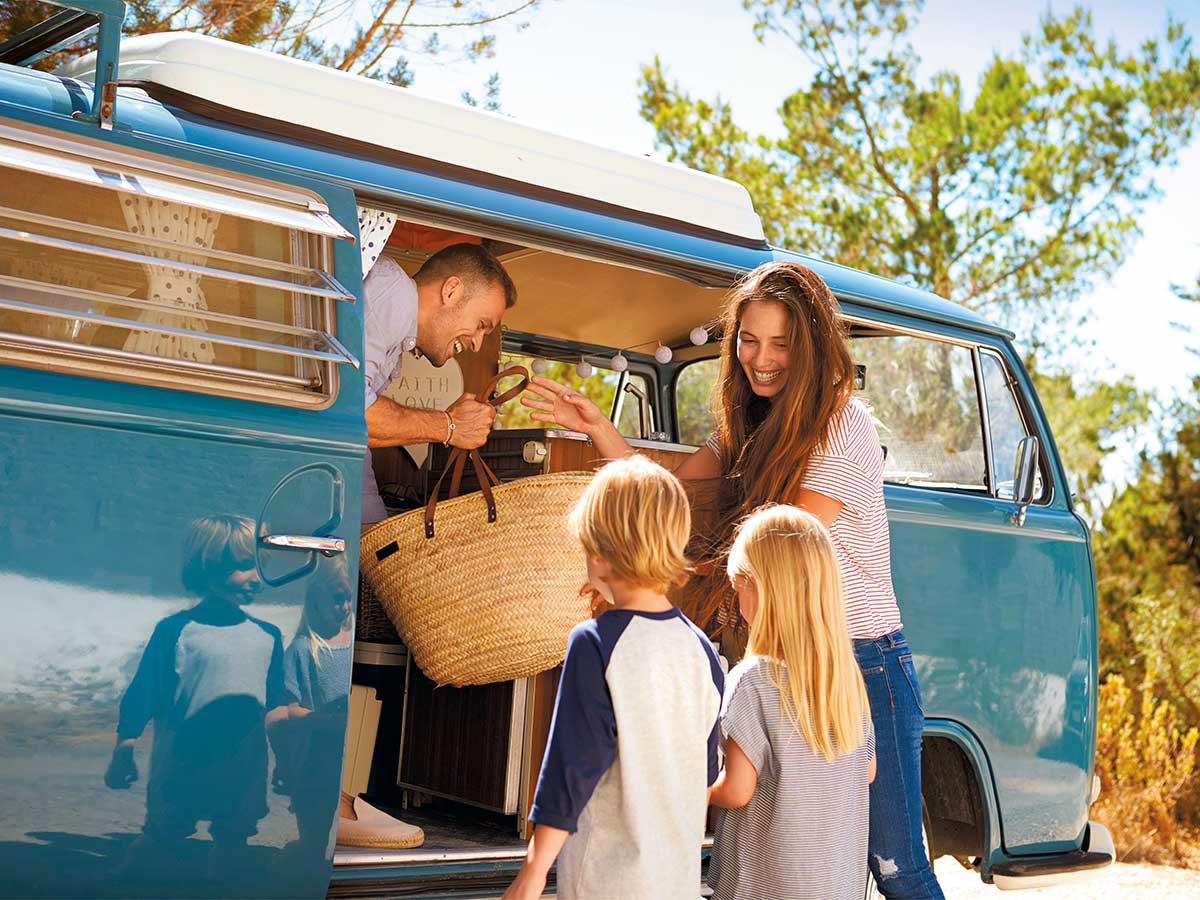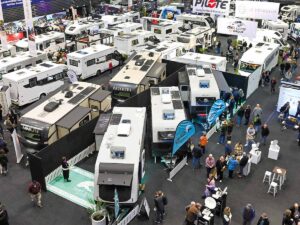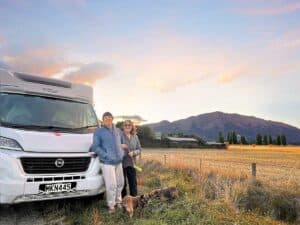Malcolm Street travels extensively by RV throughout New Zealand and Australia. With many Kiwis opting for longer trips over the summer months or perhaps considering hiring a motorhome to explore the vastness of Australia, he shares his expertise around preparing for such an experience.
There’s absolutely no doubt that New Zealand is an excellent country for motorhome travel. However, the disadvantage of being an island country is that it’s pretty expensive to take your motorhome overseas, even nearby Australia, unlike those who are based in Europe or North America.
The alternative is the fly/drive holiday. Fly to an overseas destination, pick up a rental motorhome, and enjoy the holiday. It’s a little different to packing up your motorhome, but there are similarities.
I speak from experience here, having used rental motorhomes extensively in New Zealand and Australia and in Britain, Canada, and the US.
Considerations
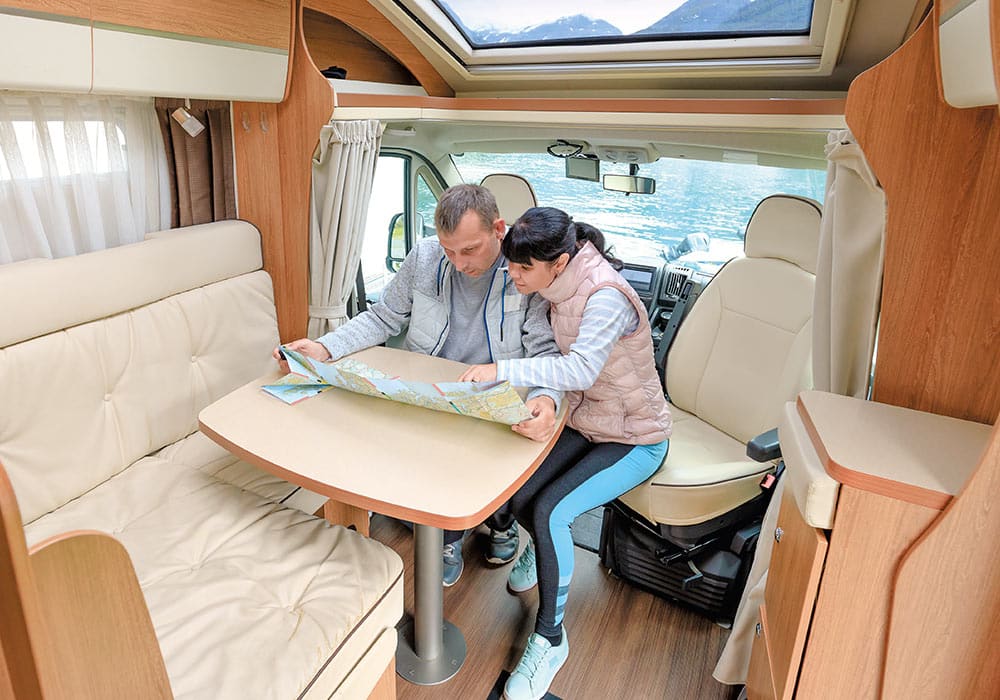
Australia is an easy destination for New Zealand travellers, with flight times varying from three hours (Sydney) to 10 hours (Darwin). Many cultural things are similar, and we all speak the same language – well, more or less, anyway.
Those flight times, though, give a clue to one of the problems with touring in Australia. Travel distances are long – very long in some states – and at the same time, there’s little infrastructure in between. That’s something that those who live in smaller/more densely populated countries often have trouble getting their heads around. We’ve met travellers who think they will do Uluru (Ayers Rock) and the Great Barrier Reef on the same day. Motorhome travel, be it owned or rental, is a little different to New Zealand primarily because of the longer distance between destinations and, apart from anything else, much higher fuel costs.
Motorhome choice
There are a number of rental motorhomes companies operating in Australia that will be familiar to Kiwis: Maui, Britz, Mighty, Apollo, and Let’s Go all have operations in Australia. For those who are happy with something more fundamental, Jucy does too. Cruisin’ and Discovery are two operators not seen in New Zealand.
All have depots in capital cities, usually not far from and airport. For one-way trips to popular places, major centres such as Broome (WA), Alice Springs (NT), and Cairns (Qld) have rental motorhome depots too.
The commonality of the names does mean that many of the motorhomes on both sides of the Tasman are similar, if not the same. The advantage is that if a rental motorhome is being considered, you can get to a rental depot and look at your proposed hire. Be aware that some operators have several different names in their stable, such as Maui/Britz/Mighty. The motorhomes are all similar but variously aged and priced to match.
If you haven’t motorhomed before, then don’t underestimate your comfort levels. A two-berth campervan might look like a good bargain. However, making the bed up every night after a long day on the road might be a chore to many. I know it costs more and we are all different, but my travelling preferences are for something with a fixed double bed or single beds that don’t have to be made up every night.
An alternative to commercial motorhome rental operators are platforms that are the equivalent of Airbnb in the hotel/motel world. Camplify is one of the biggest, offering privately owned motorhomes and caravans for rental. The advantage of this is that a wide range of retail motorhomes are available, which are different from the more conventional rental motorhomes. Location could be an advantage in some cases and not in others. One-way hires are less likely.
Destination considerations
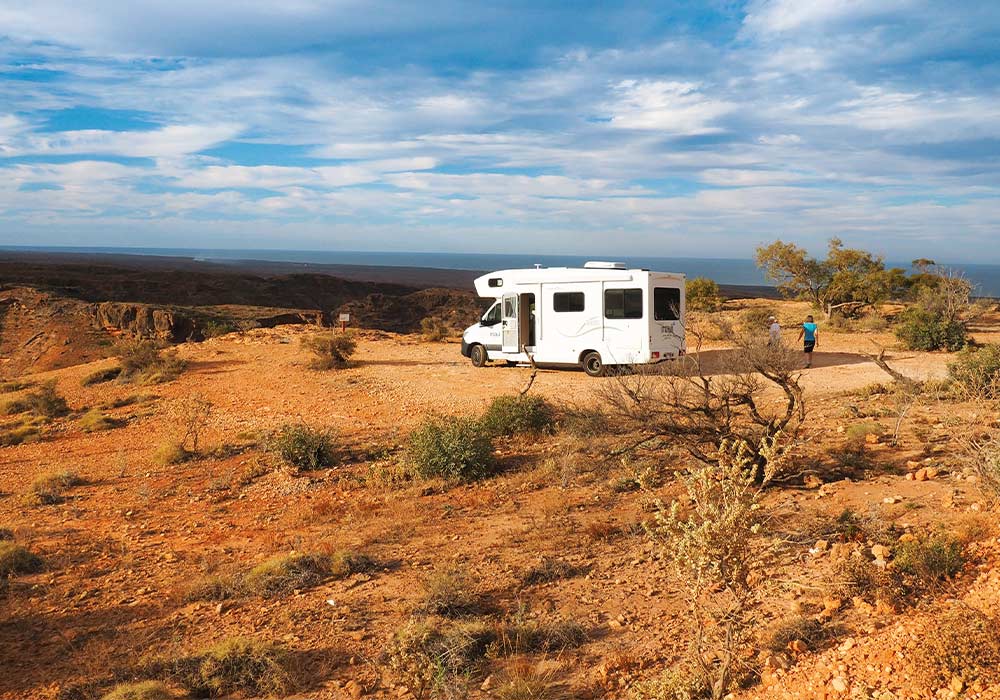
A factor in planning a trip to Australia, particularly the northern areas is the season. It can be sweltering and humid in summer, not to mention rainy, with the risk of cyclones. Perversely during the winter months, when the ‘grey wave’ travels north to avoid the colder southern states, it can be crowded, particularly in caravan parks. Like New Zealand, shoulder seasons in Australia are an excellent time to travel wherever you might be going, north or south.
Road conditions on the major highways are generally good, although, flooding has caused long-term damage in some areas. National park roads are often gravel and, in a motorhome, should be taken relatively slowly.
Plan ahead
A problem worldwide is that accommodation places such as caravan parks in popular places are often booked out well ahead of time. That’s the same in Australia, particularly for coastal caravan parks. Having a loose plan for travelling and just turning up to a caravan park at 4pm and trying to check in may not work. Freedom campers don’t have this particular issue, although, some free sites get crowded. The Wikicamps App is a helpful tool to have on your phone.
Packing
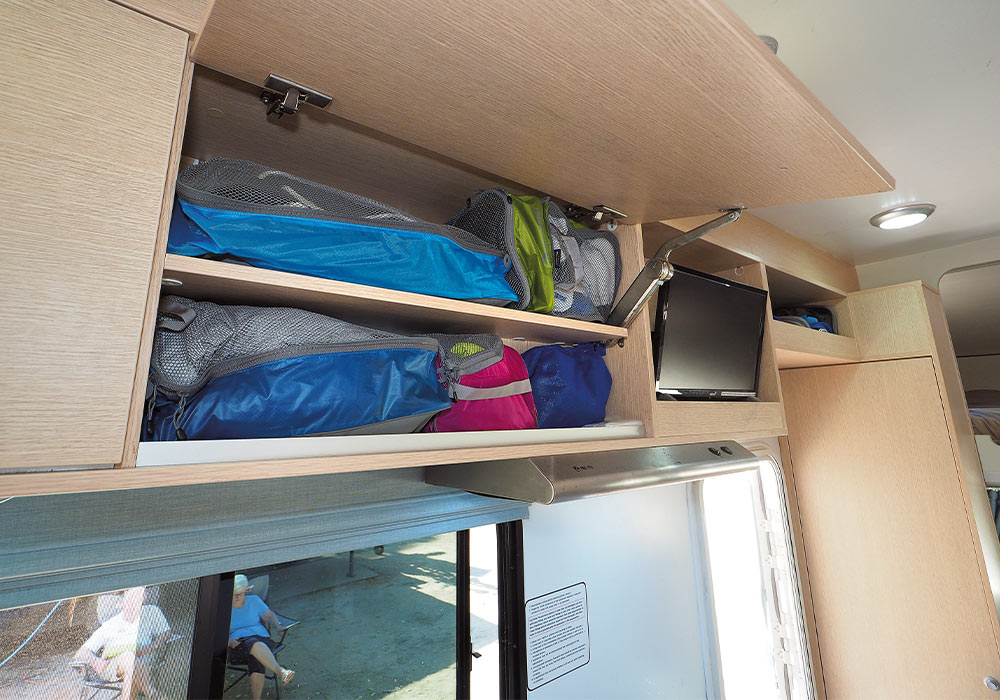
Packing is something that some folk really like and for others, it’s a last-minute stressful challenge. When packing for a fly/drive holiday, there’s the restriction of whatever the airline allows, which isn’t necessarily bad. It solves a possible overloading problem. Rental motorhomes often have less storage capacity than their retail counterparts, so it’s a good idea to travel with soft-sided bags where possible. They are much easier to store away when not being used.
Items such as clothing, which form the bulk of a traveller’s packing, are very much determined by the season. However, that’s tricky if travelling in May, where autumn temperatures in Melbourne are quite different to Cairns. Several lightweight layers work well for that.
Packing cubes of different sizes are handy for fly/drive trips. Primarily designed for air travel, these are handy in a rental RV, particularly those with high overhead lockers with empty spaces but no shelves.
Multi-outlet power boards are also a valuable item to pack, along with chargers powerful enough to charge three or four devices. We all have multiple devices that need charging these days and there are usually only so many power points in a convenient place.
They are not essential, but I like carrying a set of jeweller screwdrivers and a Leatherman multitool. Always suitable for minor repairs on the road – everything from reading glasses to loose screws in the motorhome.
It’s not strictly a packing item but something that has to be done before heading off in your rental motorhome is food and drink shopping. A little ironically, COVID made this much easier because the big supermarkets all introduced ‘click and collect’ shopping. Find a supermarket near where you pick up your motorhome from – Woolworths and Coles are the major players in Australia – and pre-order your needs ready to pick up when you have your motorhome. At the same time, as you pick up your wine and beer necessities, also take a few wine boxes. Laid on their sides, they make excellent temporary shelving in cupboards and lockers.
Communication and navigation
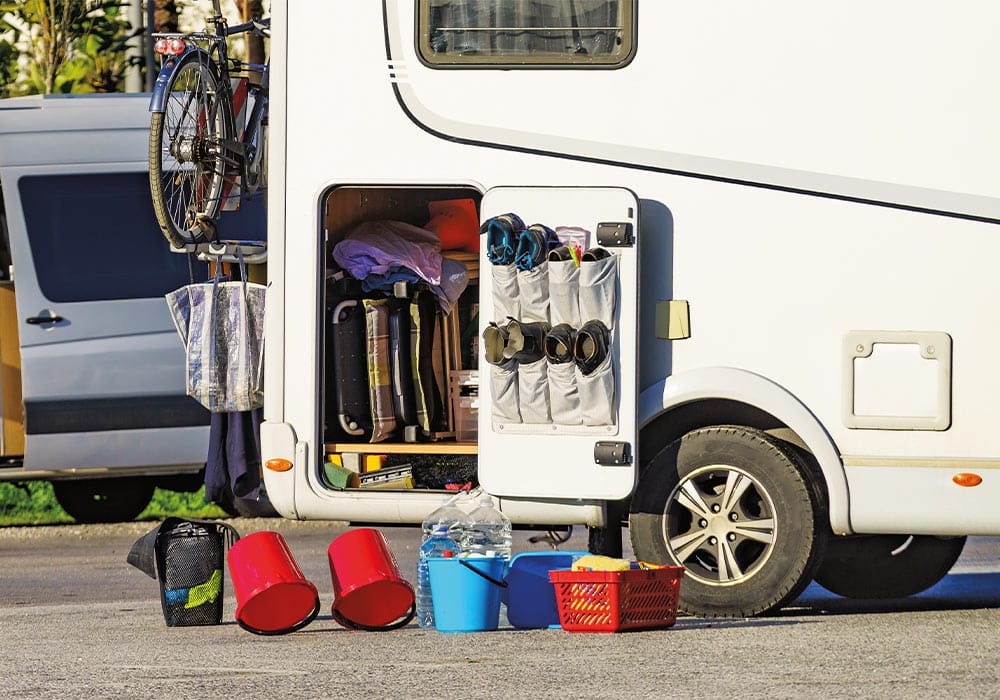
One communication problem in Australia is that there are plenty of places with patchy mobile phone coverage. That does, of course, depend on the carrier. Telstra, for instance, is often the most expensive for purchasing a pre-paid SIM card but has the best coverage, whereas a cheaper operator, such as Vodafone, has the worst.
When renting a motorhome, it’s handy to have portable WiFi of some sort. The simplest is hot-spotting off a mobile phone or having a SIM card in a tablet. Another option for multiple devices is a pocket WiFi router, such as a Netgear M2 Nighthawk. It depends on having a cell tower signal, but in my experience, works well. Free WiFi is readily available in many places but because of security issues, it’s best used cautiously for general internet surfing and preferably for something other than banking or credit card matters.
For navigating, while Google Maps on a smartphone works well, as noted above, when the phone signal is patchy, so is the navigation. Something more precise for outback travel is a satellite navigation device like those available from TomTom or Garmin.
Fuel
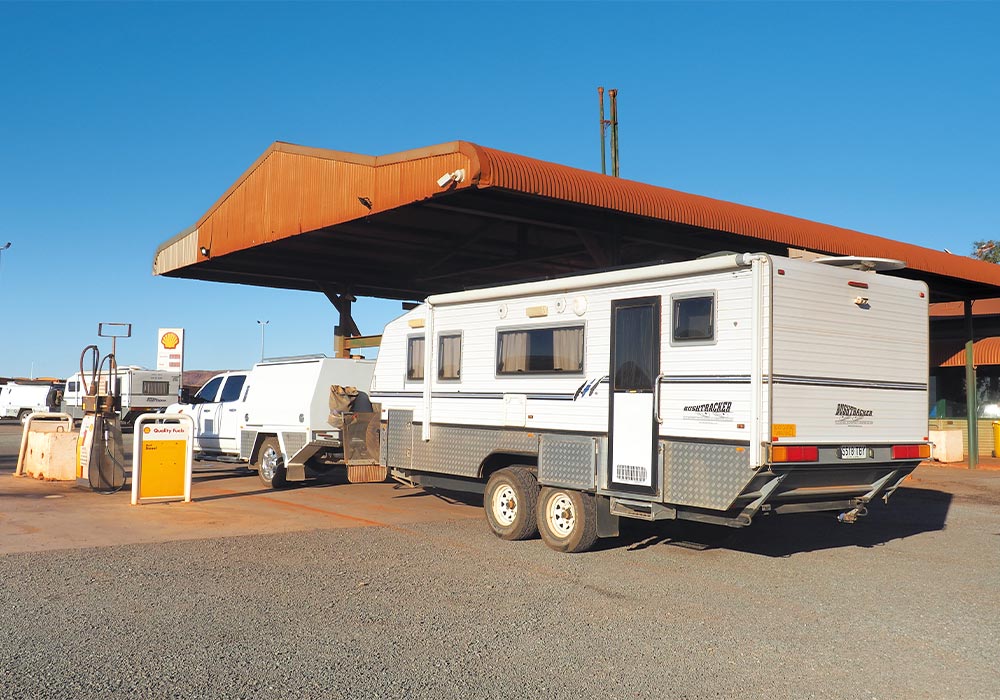
As noted previously, there are many areas in outback Australia where there’s a great deal of nothing. That includes places to refuel your motorhome. If you’re unfamiliar with your rental motorhome, determine the fuel tank capacity and spend the first few days monitoring the fuel consumption. Fuel might be expensive at lonely roadhouses but that’s better than running out on a quiet road. A philosophy adopted by many experienced travellers is to fill the tank when it gets below half. Even if you’re not buying fuel at roadhouses, it’s a courtesy to buy something if you plan on using the toilets.
Further north
Away from Australia and New Zealand, other popular destinations for RV travel include Canada, the US, Britain, and many European countries. There are others, of course, and when researching this article, a motorhome rental company popped up from Iceland. There are some differences in motorhomes available on the various continents. Canadian and North American RVs are considerably bigger (but so are the roads) but motorhomes in Europe tend to be the same size as ours.
If are wary about travelling on your own, then an alternative is to do an escorted motorhome tour. Companies such as the Kiwi Travel Club or the Australian-based America Canada Motorhome Tours run trips around Alaska, Canada, and the continental US. The aptly named European Motorhome Tours does the same around Europe. These are not particularly cheap but great for people who like a mainly organised tour but have freedom of travel most days.
Don’t be put off by the left-hand drive vehicles of North America and most of Europe. It’s more manageable than it sounds. An excellent way to adjust is to hire a left-hand drive car for a few days before your motorhome travels.
RV pick-up
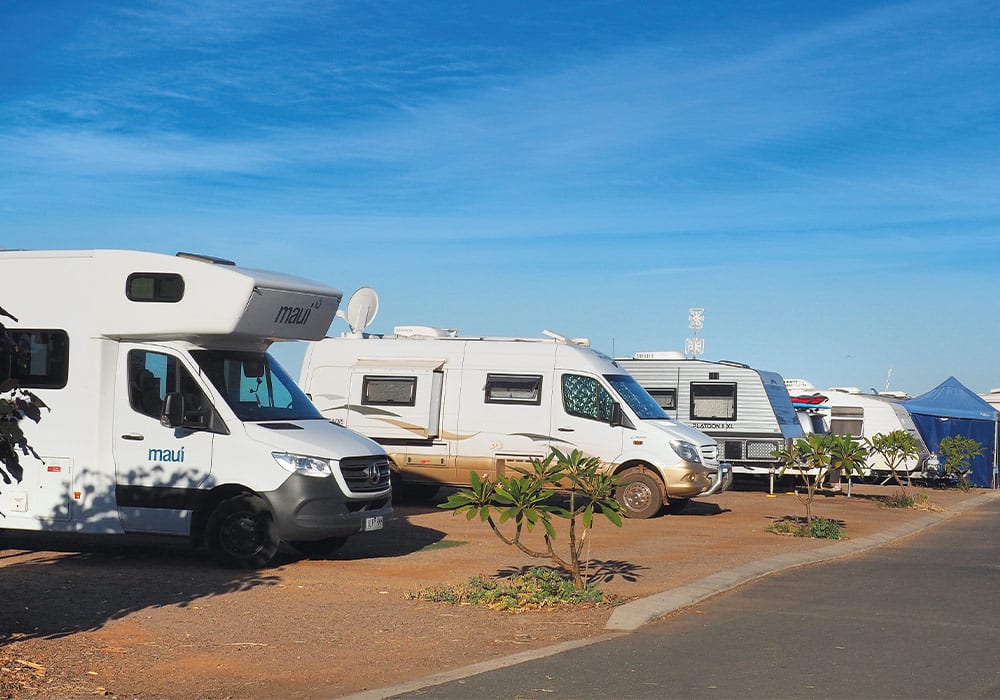
Picking up a rental motorhome for those who have yet to do it before might sound like a stressful process, but it isn’t. It’s often a good idea to fly into your destination the night before and do an early morning pick-up. That way, there will be plenty of time for familiarisation and doing the paperwork. In recent years, most rental companies have fine-tuned their methods and typically adjust things depending on the user’s experience.
Camplify operates similarly and has quite an extensive checklist that’s important for a motorhome that you’re unfamiliar with. As part of this process, it’s a good idea to understand the insurance excess details and various waiver costs. It might look expensive, but the alternative might be even more costly. Some travel insurance covers the same thing and it’s a good idea to check which is the cheaper.
After that, it’s time to grab the keys and hit the road.

